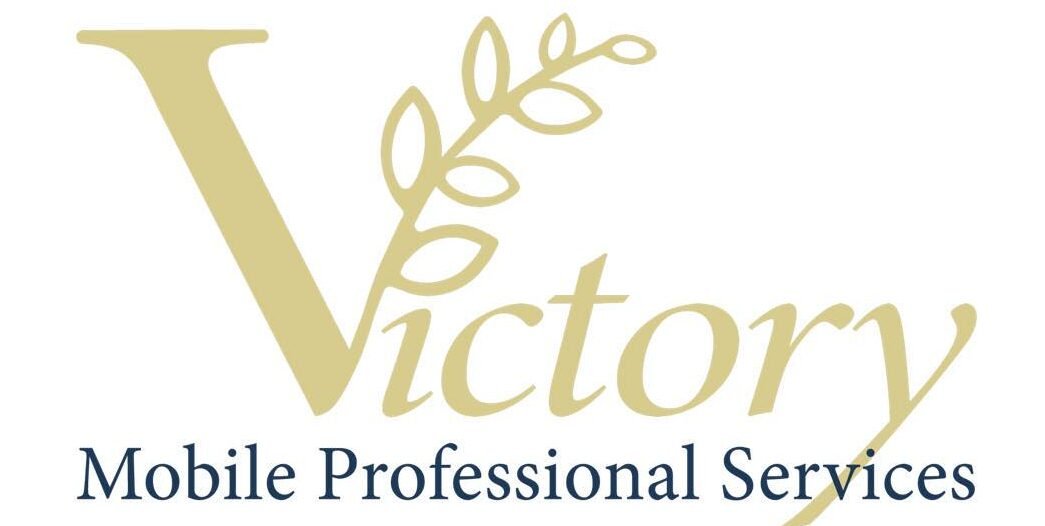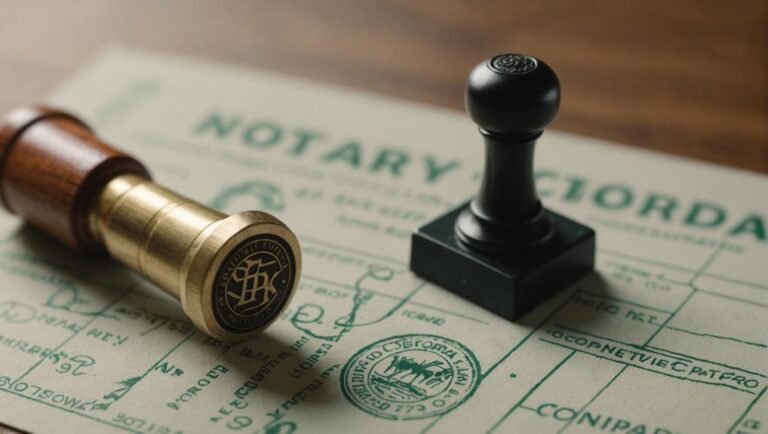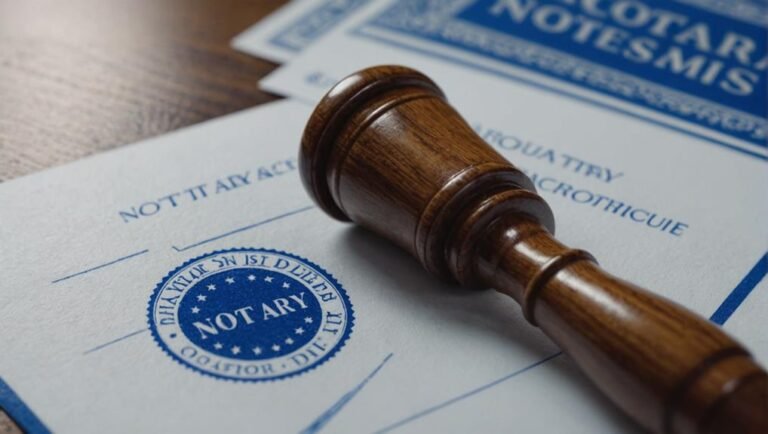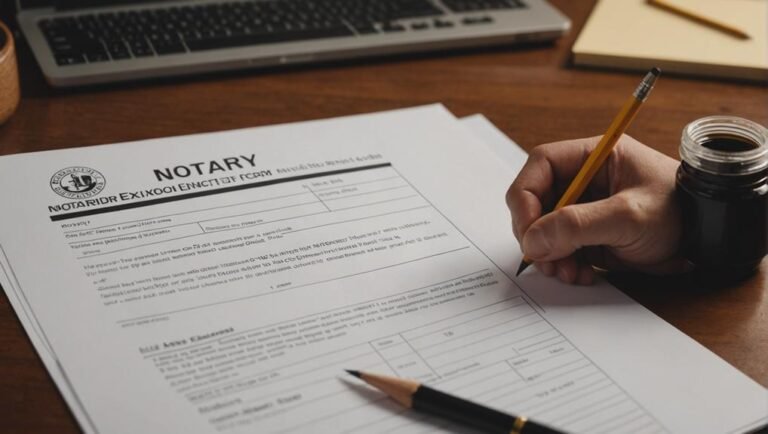As a Florida notary, you cannot notarize documents without the person present, with a financial interest, incomplete, coerced, or signed by an unknowing party. Adhering to these rules guarantees the integrity of the notarial process.
Key Takeaways
- Notarize without physical presence.
- Notarize with a financial interest.
- Notarize incomplete or coerced documents.
- Notarize if signer lacks understanding.
- Notarize if fraudulent signs are present.
Refusal Scenarios
When encountering refusal scenarios as a Florida notary, it's vital to uphold strict adherence to state laws and regulations to maintain the integrity of notarization processes. As a notary, you must decline to notarize documents if the signer isn't physically present during the notarization, as this violates notary laws. Additionally, it's essential to reject notarizing incomplete or blank documents to guarantee the transaction's integrity and validity.
Moreover, Florida law prohibits notaries from notarizing documents in which they're personally involved, such as being a party to the transaction or having a financial interest in it. It's important to be vigilant and avoid notarizing signatures for close family members, including spouses, children, parents, and siblings to uphold the impartiality and neutrality required in notarization processes.
In cases where coercion, lack of signer understanding, illegal activities, or deception are suspected, it's your duty to decline to notarize the document to prevent any potential fraudulent activities and uphold the standards of notarial conduct in Florida.
Precautionary Refusals
How can a Florida notary exercise care when considering preventive refusals for notarization services?
As a Florida notary, it's vital to be watchful and attentive to signs that may raise suspicions during the notarization process.
If you encounter a document that seems coercive, illegal, or deceptive, it's within your rights to decline services to protect both yourself and the integrity of the notarial act.
Additionally, if a document lacks essential components such as a notary certificate or if the signer is unable to articulate the required notarization act, it's advisable to reject the service.
It's also important to be cautious of signers who appear impaired or disoriented, as their understanding of the document may be compromised.
Trust your instincts; if you feel uncomfortable or unfamiliar with the document presented, it's best to decline services to uphold your impartiality and professionalism.
Additional Refusal Circumstances
In certain situations, a Florida notary may exercise their right to refuse services based on additional circumstances beyond those previously mentioned. Notaries are faced with the issue of whether they should refuse to perform a notarization, even though the document presented seems legitimate.
One such circumstance where a notary should refuse services is if they suspect any form of coercion, fraud, or deception involved in the transaction, even if the document appears valid on the surface. Moreover, if a notary is uncertain about the identity of the signer or the authenticity of the document, they've the right to refuse. Additionally, notaries should refuse in some situations like being asked to notarize a document that goes against their ethical or moral beliefs.
It's essential for notaries to prioritize honesty, integrity, and legality in all notarization services they provide, even if it means having to decline a request.
Tactful Refusal Techniques
To navigate tactful refusal techniques as a Florida notary, it's crucial to articulate statutory prohibitions clearly when declining services. By explaining the limitations set by the law, you can maintain professionalism and avoid potential conflicts.
If a document causes discomfort or if you lack familiarity with its contents, politely refuse to notarize it citing these reasons. It's essential to uphold ethical standards by declining services without engaging in unnecessary debates or providing excessive explanations.
When faced with a situation where you must decline to notarize a document, remember that your role is to guarantee the integrity of the notarial certificate. Politely inform the individual requesting your services about the statutory prohibitions that prevent you from proceeding.
Employer Restrictions
What considerations should notaries keep in mind regarding employer restrictions on notary services? Employers often impose limitations on notary services for their employees to ensure that their primary job responsibilities are not compromised. This is crucial to maintain productivity and efficiency within the workplace. Additionally, employers may restrict notary services due to the potential liability risks associated with notarizations, aiming to protect the company from legal issues. It's important for notaries to be mindful of their employer's guidelines concerning the scope and limitations of notary services to avoid any conflicts or misunderstandings.
| Employer Restrictions | Details |
|---|---|
| Primary Duties | Ensure job tasks are not neglected for notary services. |
| Liability Risks | Protect the company from legal issues related to notarizations. |
| Non-Discriminatory | Limiting services based on employer guidelines is not considered discriminatory. |
Impartial Witness Role
Maintaining neutrality is a fundamental requirement for Florida notaries when fulfilling their role as witnesses in notarizing documents. As an impartial witness, Florida notaries must remain neutral and unbiased throughout the notarization process. This neutrality is essential in preventing fraud and ensuring the validity of important transactions.
By staying neutral, notaries uphold the integrity of the notarial process, building trust in the documents they notarize. It's pivotal for Florida notaries to avoid conflicts of interest that could compromise their impartiality. Any personal interest or relationship that may influence the notary's judgment must be set aside to maintain the integrity of the notarial act.
Conflict of Interest Situations
Avoiding conflict of interest situations is vital for Florida notaries to uphold their impartiality and ethical standards when notarizing documents.
As a Florida notary, it's important to refrain from notarizing any document in which you have a financial interest or are a party to the transaction.
This prohibition guarantees that notaries maintain their impartiality and don't benefit financially from the transactions they notarize, thereby upholding the ethical standards of the profession.
Refusal for Family Members
To maintain professional integrity and adhere to Florida notary regulations, it's essential for notaries in the state to decline notarizing documents for close family members. Florida notary public guidelines strictly prohibit notarizing for family members, including spouses, children, parents, and siblings. This restriction aims to uphold impartiality and prevent conflicts of interest that may arise when notarizing for relatives.
Even in cases involving in-laws or other close family connections, it's vital for notaries to prioritize their role as impartial witnesses. By refusing to notarize documents for family members, notaries demonstrate their commitment to upholding the law and maintaining the integrity of the notarial process.
Serving as an unbiased and neutral party is fundamental to the responsibilities of a Florida notary public, and avoiding notarizing for family members is an essential step in fulfilling this duty.
Legal Disclaimer
The Legal Disclaimer provided by the American Association of Notaries serves to caution individuals about the informational nature of the content and the necessity to seek legal counsel for specific matters. It's important to understand that the information presented is for general informational purposes only and shouldn't be considered legal advice.
Florida law actually requires notaries to be vigilant in ensuring that they're knowledgeable about and compliant with the laws governing notarial acts in certain circumstances.
Notaries are advised to be aware that the Department of State doesn't guarantee the accuracy of the information provided and that they should seek advice from licensed attorneys for legal matters. This legal disclaimer underscores the importance of notaries being diligent in their responsibilities and procedures to uphold the integrity and legality of notarial acts.
Notary Responsibilities and Procedures
Understanding the notary responsibilities and procedures in Florida is essential for ensuring compliance with the laws governing notarial acts. When notarizing a signature as a Florida notary, it's imperative to follow these key guidelines:
- Sign and Affix Seal: A Florida notary must always sign and affix their seal to a notarial certificate when notarizing a signature to authenticate the document properly.
- Notify Authorities: One of the responsibilities includes notifying the Secretary of State or Governor promptly if the notary's seal falls into someone else's possession to prevent misuse.
- Physical Presence Requirement: Notaries can't notarize signatures without the person being physically present, ensuring the individual's identity verification and consent are accurate.
Frequently Asked Questions
What Can I Not Notarize in Florida?
You cannot notarize certain documents in Florida due to legal restrictions. Prohibited activities include notarizing your own or family's signatures. Notary limitations involve refusing incomplete documents or those with financial ties. Forbidden services include transactions with suspected coercion or fraud.
Can a Florida Notary Notarize for in Laws?
You can't notarize for in-laws in Florida. Notarizing for family can create conflicts due to close relationships. Uphold legal prohibitions and ethical standards by maintaining professional boundaries. Avoid personal involvement to guarantee impartiality.
What Documents Can Be Notarized in Florida?
In Florida, notaries can notarize a variety of documents such as real estate agreements, financial transactions, legal documents, medical forms, wills, trusts, and marriage licenses. Verify your documents are complete and bring valid identification.
Can a Florida Notary Notarize Their Own Signature?
You can't notarize your own signature in Florida, whether it's for personal documents, business transactions, legal contracts, real estate agreements, financial forms, or government paperwork. Remember, it's essential to maintain integrity and impartiality.
Conclusion
So, now you know what a Florida notary can't notarize. Remember, it's important to always follow the laws and regulations governing notaries to protect yourself and others.
By understanding the restrictions and circumstances in which a notary can decline to notarize a document, you can guarantee that the notarization process is conducted ethically and legally.
Keep learning and growing in your notary knowledge to be the best notary you can be!






